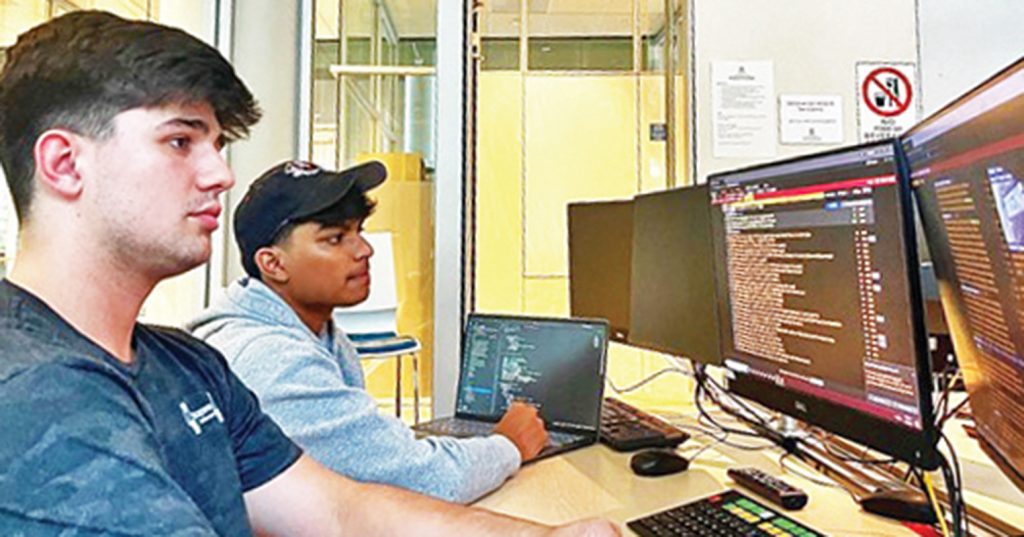
COLUMBIA – Two Blythewood USC students began research in January at the University of South Carolina that found that artificial intelligence can be used to predict short-term stock market fluctuations.
First-year USC business student Livingston Weisinger and first-year USC computer science student Tarun Ramkumar’s goal is to use AI and news sentiment to outperform the stock market. Both students are 2023 Blythewood High School alumni.
Weisinger’s original idea was to pull daily news articles about top businesses in the stock market using ChatGPT. Each business gets scored on whether the article portrayed it positively, neutrally, or negatively. The businesses with negative scores get sold, and businesses with positive scores get bought. He then compared the returns of the news sentiment method to the S&P 500, the stock market index tracking the stock performance of 500 of the largest companies listed on stock exchanges in the United States. He found that this artificial intelligence news sentiment successfully predicts short-term stock market fluctuations.
Weisinger was inspired by University of Florida Professors Alejandro Lopez-Lira and Yuehua Tang’s hypothesis. They hypothesized that ChatGPT and other large language models could predict stock market returns using news sentiment. While their findings were unpredictable, Weisinger wanted to further their hypothesis through a long-term study.
“The field of AI is growing really quickly, but there’s a gap in research on this specific topic,” Weisinger said.
Weisinger began his research in January after receiving financial backing from the USC Honors College and various donors. USC economics professor Sarah Caroll is the project advisor and USC students Graham Hagigh and Nathan Sweigart are the research assistants.
Weisinger’s research consists of a three-trial experiment that will end in the fall of 2025. He will use his AI news sentiment method to see if it can outperform the S&P 500 in all three trials.
With the financial backing and a contribution of his own, Weisinger began his research with $40,000 to invest. On this $40,000 investment, Weisinger made a 2.5% ($1,000) return on his investment in only a week.
However, he quickly encountered problems with the ability of ChatGPT, which forced him to look for improved methods to continue his process without using ChatGPT to find articles.
To overcome this challenge, Weisinger enlisted fellow USC student Ramkumar, a friend from their days at Blythewood High School.
Ramkumar’s responsibility is automating the news-gathering process and removing the manual aspect of entering prompts into ChatGPT. They are still working towards automation.
To Ramkumar, the ideal outcome of this project is to open their program to the public as a financial tool for stock trading.
Ramkumar said, “Allowing accessibility to the same tools that huge banks have evens the playing field. We want everyone to have the same advantages.”
Though AI can have unforeseen effects in the future, Weisinger is optimistic about where the field can go.
“AI is a useful tool to better human life. AI has practical uses in medicine and a ton of other fields,” he said.
It is important to Weisinger and Ramkumar that USC is at the forefront of artificial intelligence advancements.
“We want USC to be ahead in this new field. We’re doing this mainly to bring pride to the university,” Weisinger said.
Weisinger and Ramkumar’s research is far from over, and they will continue to explore the success of their method through trial experiments.




